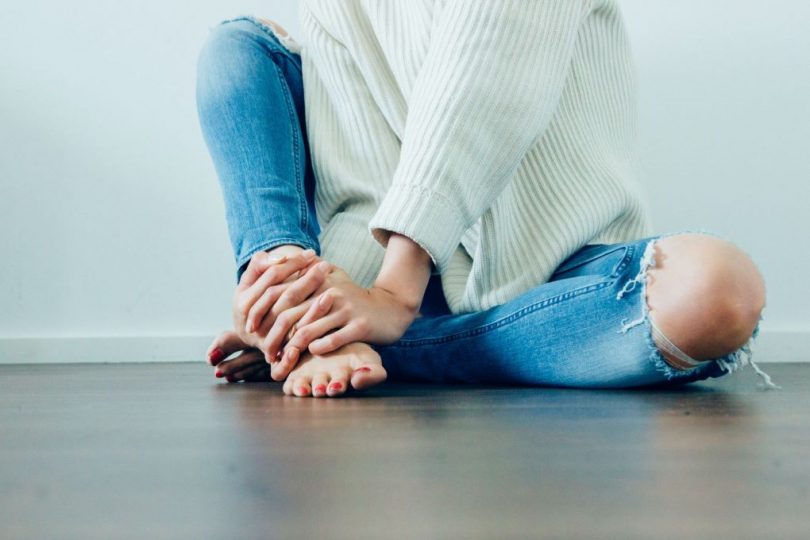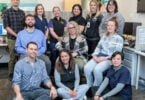With more time spent at home due to the COVID-19 pandemic, many of us have set our shoes aside in favour of going barefoot.
While a seemingly innocent choice, “if your feet aren’t well adjusted to being barefoot, then you’re going to get stress reactions,” says Dr. Alastair Younger, Orthopedic Surgeon and foot-and-ankle specialist at St. Paul’s Hospital.
In fact, foot pain related to going without shoes during the COVID-19 pandemic has become so common it prompted one New York foot-and-ankle expert, Dr. Rock Positano, to coin the term, “pandemic foot.”

Going barefoot has its risks
“We see the consequences of people dropping plates and knives on their feet while cooking barefoot,” says Dr. Younger.
From accidents, to stress injuries, to overall wear and tear, going barefoot is not without risks.
He adds that over the course of the pandemic, “we’ve seen an increase in things like foot pain from plantar fasciitis, toe fractures, lacerations and a growing need for bunion surgery”.
Wear your shoes, even at home
Shoes are designed to support our feet, improve foot function and prevent infection and injury. This need for protection doesn’t begin and end when you take off your shoes at your front door.
Dr. Younger suggests having a clean pair of “indoor shoes” set aside for use inside your home to encourage the practice of wearing shoes more often.
That said, not all shoes are created equal. This means choosing “proper shoes, not flip flops,” says Dr. Younger. “Flip flops won’t protect your feet.”
The barefoot running trend
Many are familiar with the concept of barefoot running—the idea that running without shoes, or in minimalist shoes, is better. A concept seemingly at odds with the increase of barefoot related injuries; however, Dr. Younger explains, “it’s all about the training.”
Not being active while barefoot and then suddenly choosing to take up running without shoes will inevitably lead to issues; however, if you are adjusting slowly and training your feet to be barefoot, possible consequences can be reduced.
Wear shoes, take Vitamin D and go for a walk
Fancy exercises need not apply. When asked what our feet need to stay healthy, Dr. Younger says it can be as simple as wearing good shoes, taking a Vitamin D supplement and going for regular walks.
“The best way to maintain foot health is to use them. That means standing and walking. That’s what we should all be doing for our health, getting a minimum number of steps in every day,” says Dr. Younger.
Vitamin D—a nutrient used by our bodies to build and maintain our bones—is important in preventing stress fractures and other bone related injuries.
“I see these issues quite often, easily preventable by taking Vitamin D, ironically often in relatively athletic people,” says Dr. Younger.
When people exercise indoors, wear sunscreen when outside and live in an overcast climate, they often absorb less Vitamin D than is required to keep bones healthy.
This is where a supplement comes in, because, “the best thing we can do for our bone health is to take Vitamin D.”
So the next time you go to kick off your shoes, don’t forget about your feet.





